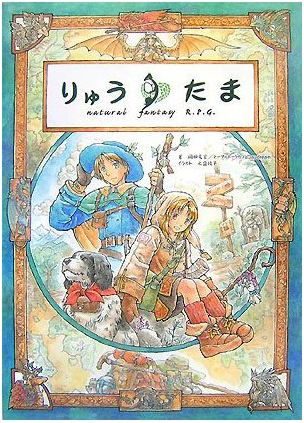Hi all,
since I occassionally get asked “what are Indie RPGs all about?” or “which ones are there and what makes them so ‘indie’?” and the like, and since Neil recently asked me to maybe make a thread about the topic, I decided to do this.
In this thread, I will - in no particular order and with no particular regularity - present certain “Indie” RPGs that have attracted my interest at one time or another, and talk about them in some detail.
First off, though, a disclaimer:
The term “indie” is itself a problematic one. Wikipedia gives its definition as:
“a role-playing game published outside of traditional, ‘mainstream’ means. Varying definitions require that commercial, design, or conceptual elements of the game stay under the control of the creator, or that the game should just be produced outside of a corporate environment. The validity and exact definition of the ‘indie’ label is disputed.”
en.wikipedia.org/wiki/Indie_role-playing_game
(And before anyone asks, yeah they taught me at university to never ever use Wikipedia as a source, but what can I say - I’m just a rebel that way  )
)
Anyways, the “indie” label has become established in a way, even though many people today prefer the terms “storygame” or “narrative rpg”.
The history of these games is tightly interwoven with The Forge website, its founder Ron Edwards, and his theory of GNS. That theory (describing gamers’ “creative agendas” as breaking down into Gamism, Narrativism and Simulationism) is as disputed, potentially problematic, and frequently misinterpreted as the term “Indie RPGs” itself.
For those interested anyways, Ron Edwards’ essays System Does Matter and his three essays elaborating on the GNS concept(s)
Simulationism - The Right To Dream
Gamism - Step On Up
Narrativism - Story Now
may make a good starting point to look into the matter.
But let us not concern too much with theory here, as these essays are lenghty and may seem rather dry at times. And the debates they have spawned in the last decade or so, can be even more so 
To conclude this brief history section, the first “Indie” RPG ever to be written and (self-)published was Ron Edwards’ own Sorcerer (2001), a game that radically deviated from established RPG traditions in both mechanics, and themes. In short, it was a tightly focussed game in which characters have but one (1) stat - Humanity - and the question is raised and treated “how far will you go to get what you want?”
I have never played it though, as I came to the Indie movement only years later, and never had an opportunity to actually try it out (so far).
I will therefore start the thread off with another game, namely the first-ever Indie game that I actually ever played. This will be the content of the next post herein.
Apart from all that, let me just establish a few things for this thread right away: Everyone is of course welcome to ask questions, add their own observations and experiences, and ask for clarification if I expressed anything in a confusing or muddled way… (it’s been known to happen  )
)
If you’ve got an Indie game you’d like to talk about, go right ahead! No need to limit the thread to one game per month or anything like that, never mind the thread title  (titles always lie to you anyways, same as trailers and covers do of course)
(titles always lie to you anyways, same as trailers and covers do of course)
But: one big caveat - please NO lenghty discussions of GNS theory in here!
I know its widely perceived as ridiculous, and I believe I might just convice a few people of this not being the case (or it applying differently than you might think it would), but if we really want to go into that, perhaps the place to do so would be another thread rather than this one… 

 ) line.
) line.
 I just had to try it out after I read about the funky bits with the changing GM roles in it!
I just had to try it out after I read about the funky bits with the changing GM roles in it!



 [/quote]
[/quote]